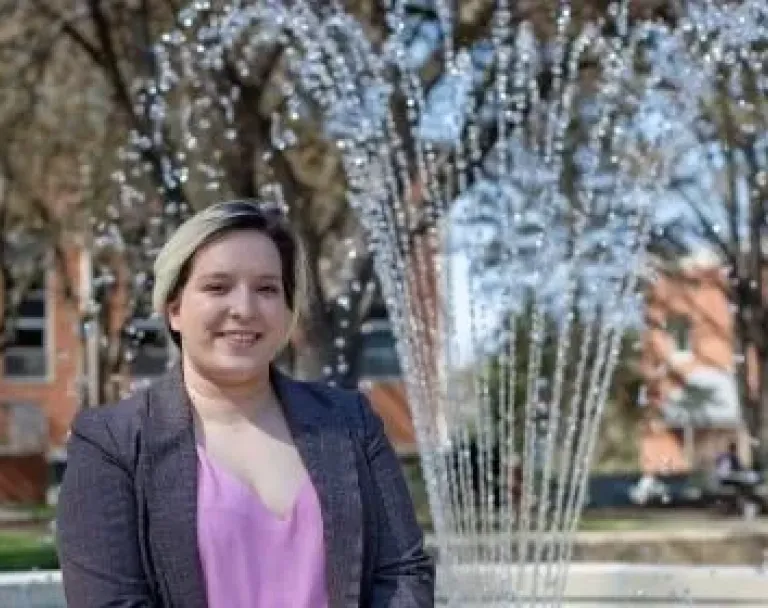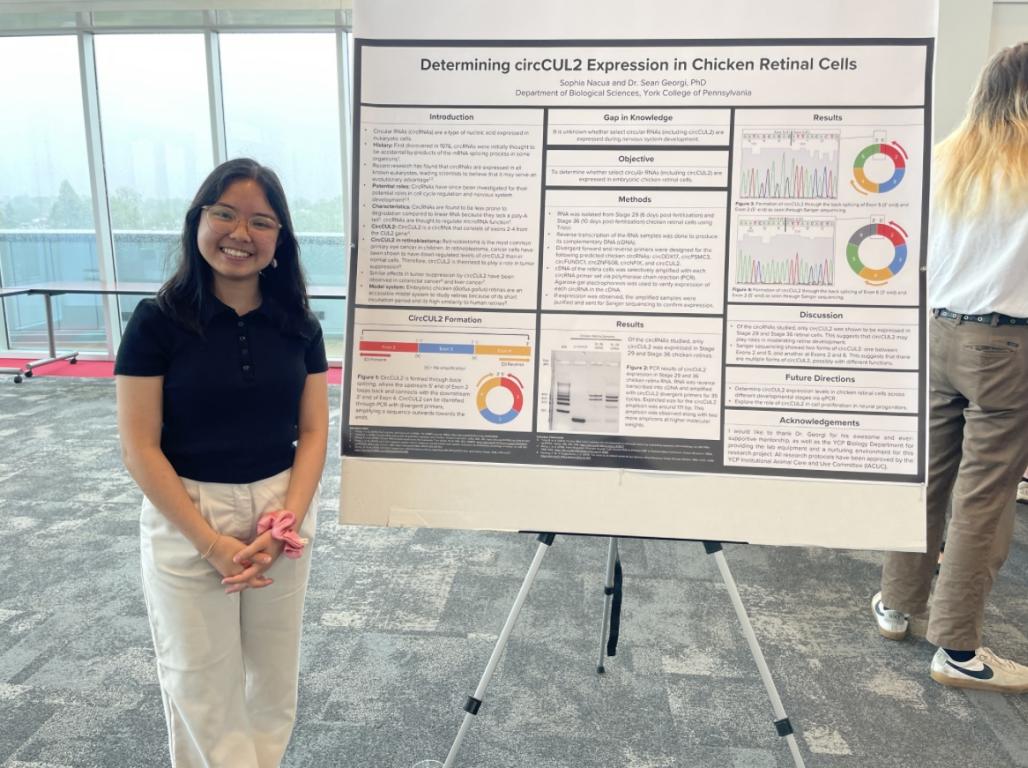
- Academics
- Kinsley School of Engineering, Sciences and Technology
- Spotlights
- Abby Foxwell Climate Change
York College examines the conversation as climate change becomes “climate crisis”
Abigail Foxwell ’21 has participated in recycling drives and community cleanup initiatives since she was in grade school. Taking care of the environment has been important to her for as long as she can remember. Now, as a York College of Pennsylvania Chemistry major and a member of the President’s Task Force on Campus Sustainability (PTFCS) she’s hoping to play a bigger role in the conversation around climate change.
While recycling, composting, and using less are all simple ways to impact the environment, Foxwell knows they aren’t enough anymore. She sees the global conversation around climate change shift, often now referred to as “climate crisis,” to emphasize the dire need to change behaviors and save the Earth.
“I’ve seen a change where even students who didn’t think climate change was a big deal before are talking about it now,” she says. “I think the more we see environmental crisis, the more people will be aware and hopefully we can change it before it becomes worse.”
A team effort
Spencer Smith ’22, a Civil Engineering major at York College, has taken many sustainability classes and even studied sustainability abroad in Costa Rica. He also helped start the sustainability committee with York College’s Student Senate, joined his hometown's environmental council, and served as a member of the PTFCS.
“I think what the College is doing is a fantastic start to a bigger sustainability push,” Smith says. “From a student's perspective, I've found that I am able to have meetings with college higher-ups and discuss how change can best be accomplished.”
Greg Foy, Associate Professor of Chemistry at York College, believes the climate is the most significant scientific issue in the world today. For the past 15 years, he’s found ways to include climate change in his classes, he’s organized teacher workshops on the topic, and he’s participated in community lectures.
But, even he admits, that’s a long time to be talking about one subject. “People have become tired of hearing it, but we haven’t made significant changes,” he says.
‘It’s not going away’
One component he sees changing that is The Paris Agreement, an agreement within the United Nations Framework Convention on Climate Change, which 196 countries committed to in 2015.
The Paris Agreement sets out a global framework to avoid dangerous climate change by limiting global warming to well below 2°C and pursuing efforts to limit it to 1.5°C. It also aims to strengthen countries' ability to deal with the impacts of climate change and support them in their efforts.
“Despite all the political misleading, it was an agreement that each country would develop its own plan,” Foy says. “Nobody was telling any other country how to mitigate or how to implement adaptation. The part that was binding was that each country would need to report what they’re doing accurately.”
For the past four years, the United States wasn’t engaging in the process. When President Donald Trump took office, he forwarded an intent to withdraw from the agreement. That withdraw could not take effect until November 2020. In the interim, the United States did little work with the international community.
President Joe Biden recommitted the United States to The Paris Agreement on his first day in office. “I anticipate an extremely different outcome of our engagement at this point,” Foy says. “Climate change is an extremely complex issue, and it touches every area of our society. The thing about this is, it’s not going away.”
Can we fix it?
Climate repair can start to happen when we reduce and eliminate the pollution of carbon dioxide (CO2), a greenhouse gas that is produced through human activities such as deforestation, land use changes, and burning fossil fuels.
“It sounds like doomsday, and there is a population that says, ‘It’s too big of an issue to do anything about it.’ That population is wrong,” Foy says.
There’s clear evidence of humans being able to impact the environment for good, seen in The Montreal Protocol of the 1980s and championed by President Ronald Reagan. Chlorofluorocarbons (CFCs), which were largely found in aerosols, contributed to the erosion of the ozone layer and led to harmful UV radiation seeping into the environment. The international agreement stopped the production of CFCs, which allowed the ozone layer to heal.
“That’s not insignificant,” Foy says. “It really shows that together we can create change. We just have to really get moving on this, because there will come a time when it’s too late.”
Watch this Spartan Speaks
Looking to learn more about Climate Change? Watch this lecture here: https://www.youtube.com/watch?v=DXST9P2gLw0




